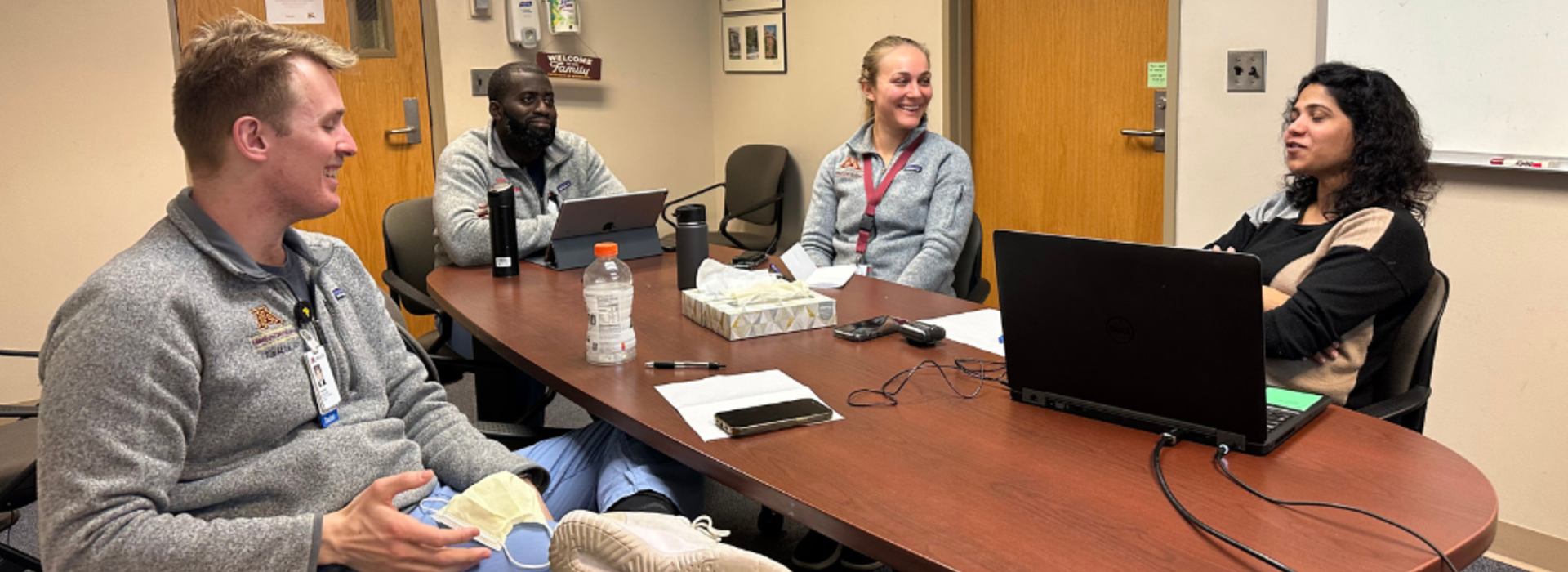
Dr. Grishma Trivedi Brings New Antibiotic Resistance Research to the UMN Medical School
Dr. Grishma Trivedi Brings New Antibiotic Resistance Research to the UMN Medical School
Dr. Trivedi’s research focuses on gram-negative resistance organisms and antibiotic development.
Dr. Grishma Trivedi, a new faculty member in the Division of Infectious Diseases and International Medicine, recently published research from her residency and fellowship at the University at Buffalo. Under the guidance of her research mentor and principal investigator of the publication, Dr. Thomas A. Russo, Dr. Trivedi studied the gram-negative bacteria Acinetobacter baumannii. This organism is the number one priority for developing more antibiotic options per the Center for Disease Control (CDC) and World Health Organization (WHO). Acinetobacter baumannii can cause serious and sometimes life-threatening infections, is highly resistant to antibiotic treatment and is often found in veteran populations and ICUs.
“Antibiotic resistance is a very hot issue in recent years,” Dr. Trivedi says. “What it means for humans is that for the infections we fight, we are running out of treatment options. That’s a scary thought because someone could die just because we don’t have antibiotics left in our arsenal.”
Despite the grave need for research and development, commercial pharmaceuticals have mostly removed themselves from the issue because of the lack of economic incentive, making academic medicine crucial in the fight against antibiotic resistance.
“It takes years and years of study to develop antibiotics that are safe and efficacious enough to release into the market, but resistance is evolving faster than commercial pharmaceuticals can develop those treatments,” Dr. Trivedi explains. “The burden of this search for new options falls into academic centers and research teams.”
Dr. Trivedi’s research at the Russo Lab focused on a particular penicillin-binding protein (PBP) in a clinical strain of Acinetobacter baumannii. PBPs are a group of enzymes found in the cell wall of bacteria that contribute to the final stages of cell wall formation. There are different types of PBPs that are classified by various properties. Dr. Trivedi’s research honed in on PBP 7/8, which she says has been studied very little in other gram-negative bacterias.
“When I was looking for my research project, we were looking at this extremely resistant strain of Acinetobacter baumannii and thought, ‘Ok, what would be the PBP 7/8?’” Dr. Trivedi recalls. “Clinical utility was not known, and we thought that it would be interesting to see the effect if we created a mutant and removed PBP 7/8 from the strain.”
Removing PBP 7/8 from bacteria can have many different effects and potentially lead to changes in the cell wall that increases the permeability of various antibiotics, making them more effective in fighting the infection.
The study had extremely promising results, reducing the lethality of the Acinetobacter strain by 90% and earning the team a merit grant from the U.S. Department of Veterans Affairs. Despite the encouraging outcomes, Dr. Trivedi says that more studies will be necessary to cement the findings and develop clinical usages, research she intends to conduct as a U of M Medical School faculty member.
“This work opens the door to developing a different class of antibiotics, either using differing molecules or used along with existing antibiotics,” Dr. Trivedi explains. “It’s something to work for.”
As a clinician, educator and scientist, Dr. Trivedi looks forward to continuing her research and developing new life-saving treatment options for her patients here in Minnesota and across the globe.
“The University of Minnesota has great resources and support for patient care, education and research. I look forward to working as not just a physician-researcher but also as an educator, and I’m hopeful that with the next set of experiments and information we get, we can take it to clinical use and develop a new antibiotic.